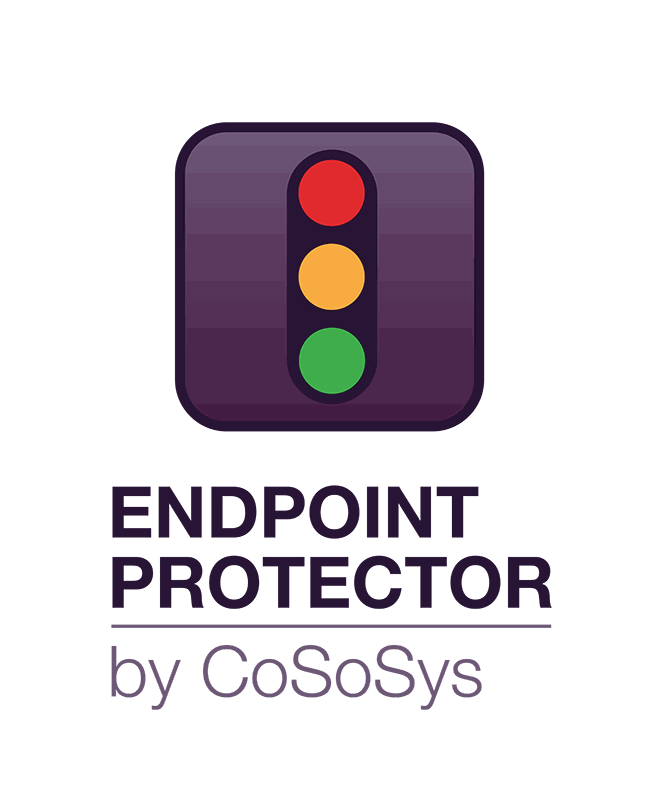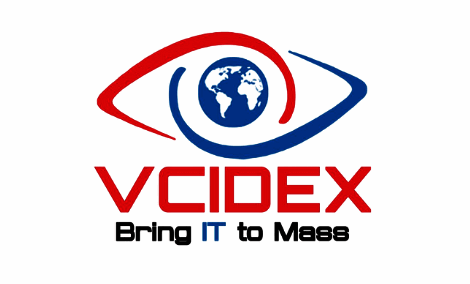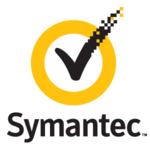What Is Endpoint Security Software?
A specific kind of software called endpoint security software is made to safeguard network-connected devices like laptops, desktop computers, tablets, and smartphones. It protects the security and integrity of private information on these devices by acting as a first line of defense against online attacks. Multiple security layers and protection against a variety of threats, such as malware, viruses, ransomware, phishing attacks, and malicious websites, are provided by this software.
It also aids in preventing unauthorized individuals from accessing or stealing private data. Features like firewall, intrusion detection/prevention, data encryption, antivirus, and access control are frequently included in endpoint security software. Together, these features monitor and manage sensitive data access, as well as identify and stop any fraudulent behavior.
The capacity of endpoint security software to continuously monitor and safeguard devices, even when they are not connected to the network, is one of its main advantages. For employees who frequently travel with their devices or who work remotely, this is especially crucial. When thinking about endpoint security software for your company, it's critical to find a solution that's simple to use and administer.
Because cyber risks are always changing, it should also provide regular updates and assistance. Additionally, take into account the software's scalability and interoperability with your existing network and devices. Make sure the program can manage the volume without sacrificing its functionality if you have a lot of users and devices.
Purchasing endpoint security software helps protect your company from possible data breaches and cyberattacks, which can be expensive and harm your brand. Thus, carefully weigh your possibilities and select a dependable, all-inclusive solution that meets your unique requirements.
What Are The Recent Trends In Endpoint Security Software?
One essential tool for defending companies and their data against online threats is endpoint security software. The cybersecurity environment is always evolving due to technological breakthroughs, and endpoint security needs to change as well. To assist you in making an informed choice when acquiring endpoint security software for your company, we will go over the most recent developments in this buyer's guide.
1. Machine Learning And Artificial Intelligence: The use of machine learning (ML) and artificial intelligence (AI) technology is one of the biggest developments in endpoint security software. Endpoint security software can now learn from patterns and unusual activity thanks to these technologies, which facilitates the rapid and effective identification and mitigation of possible cyberthreats. AI and ML are crucial for improving endpoint security efficacy because to the growing complexity of cyberthreats.
2. Protection Of Cloud-Based: Endpoints Another significant development in the field of cybersecurity is cloud-based endpoint protection. As more workers use personal devices and work remotely, businesses are employing cloud-based endpoint security software to safeguard their endpoints, no matter where they are physically located. Additionally, cloud-based solutions provide real-time threat detection and automatic updates, making them a more practical and efficient choice for companies of all sizes.
3. The Model Of Zero: Trust Security The perimeter-based security approach, which uses firewalls and antivirus software to defend the network from outside threats, has historically been the foundation of endpoint security. However, a new security strategy known as the zero trust security paradigm is gaining traction due to the rise in sophisticated cyberthreats. According to this approach, resources are only made available to those who have a legitimate need to know, and no user or device is presumed to be infallible. Because it takes into account both internal and external risks, this method enables more thorough endpoint security.
4. Combining Additional Security Tools: Combining several security measures into a single, all-inclusive solution is another trend in endpoint security software. The goal of this trend is to streamline and improve the efficiency of security tool administration. Endpoint security software can offer a more thorough and proactive approach to safeguarding the company's endpoints by combining with additional technologies like threat intelligence, vulnerability management, and security information and event management (SIEM).
5. Adopting Security For Mobile: Mobile security is a major problem since the proliferation of mobile devices in the workplace has exposed new organizational risks. Consequently, mobile device management (MDM) and mobile threat defense (MTD) features are becoming a part of endpoint security software. Regardless of whether they are laptops, desktop computers, or mobile devices, this trend guarantees that every device in an organization is safe and secure.
Benefits Of Using Endpoint Security Software
Because it offers complete protection for endpoints like PCs, laptops, mobile devices, and servers, endpoint security software is an essential tool for companies of all sizes. An investment in this kind of software is crucial for any firm since it provides a multi-layered defense against ransomware, viruses, malware, and other cyberthreats. The main advantages of utilizing endpoint security software will be covered in this buyer's guide.
1. Enhanced Security: The capacity of endpoint security software to offer improved security for every endpoint in a network is one of its main advantages. It can identify and stop possible threats thanks to its many layers of defense, protecting important information and systems.
2. Centralized Administration: With the help of centralized administration provided by endpoint security software, IT staff can oversee and control security settings on every endpoint from a single panel. This makes security maintenance easier and guarantees that every endpoint's security posture is consistent.
3. Proactive: Threat Detection: Conventional antivirus software can only detect known threats because it uses signature-based detection. However, endpoint security software use cutting-edge methods like machine learning and behavioral tracking to identify and stop new threats instantly.
4. Data Loss Prevention: To guard against insider attacks, unintentional data leaks, and data exfiltration, endpoint security software also has data loss prevention features. For businesses that handle sensitive data, like financial institutions and healthcare providers, this is especially important.
5. Adherence To Rules And Regulation Compliance: By offering capabilities like encryption, access control, and activity monitoring, endpoint security software assists businesses in meeting legal and regulatory obligations. This helps prevent costly fines and harm to the organization's reputation while guaranteeing the protection of sensitive data.
6. Enhanced Productivity: Uninterrupted workflow on a secure network results in higher productivity. When endpoint security software is installed, workers can concentrate on their work without being distracted by possible cybersecurity risks, which boosts output and expands the company.
7. Cost-Effective: Endpoint security software is an affordable choice for companies of all sizes, even if it offers sophisticated security capabilities. In the long term, it saves money and resources by doing away with the need for different security tools.
Important Factors To Consider While Purchasing Endpoint Security Software?
A number of variables should be properly taken into account before investing in endpoint security software. These characteristics and factors will guarantee that you are choosing wisely and successfully for your particular requirements and work setting. The following are crucial elements to take into account while investing in endpoint security software:
1. Compatibility: It's important to confirm that endpoint security software is compatible with your current operating system and other security solutions before making any purchases. By doing this, possible conflicts and compatibility problems will be avoided and a seamless integration will be guaranteed.
2. Scalability: Your company's security requirements will expand along with it. Selecting an endpoint security solution that is adaptable and can change to accommodate your organization's growing needs and size is crucial.
3. Functionality And Protection: To shield your endpoints from different threats, endpoint security software should offer a wide range of functionality. Look for features like data encryption, intrusion detection, firewall protection, and virus detection.
4. Performance Impact: Because they use a lot of resources, some security solutions can cause your system to lag considerably. To make sure the endpoint security software doesn't impair your employees' productivity, it is crucial to take into account how it will affect their performance.
5. Centralized Management: It can be difficult to oversee several endpoints. Selecting a system that provides centralized management—which enables you to manage and keep an eye on all endpoints from a single console is therefore essential.
6. User-Friendly Interface: Your staff will find it simpler to utilize the endpoint security software efficiently if it has an intuitive interface. Additionally, this will cut down on the time and materials required for software training.
7. Mobile Device Management: As remote work becomes more common, it's important to think about mobile device security. To safeguard devices used outside of the workplace network, look for endpoint security solutions that have mobile device management capabilities.
8. Customer Help: Having dependable customer help from the endpoint security software supplier is crucial in the event of any technical problems or inquiries. Seek out round-the-clock assistance by live chat, email, or phone.
9. Cost: The price of endpoint security software can vary significantly, so it's critical to set a budget and weigh your options to get the best deal.
10. Reputation And Reviews: Lastly, do your homework and check user reviews before deciding on any endpoint security software. This will help you make an informed choice by providing you with information about the software's performance and reputation. You can make sure that you select a dependable and efficient endpoint security solution that fits the particular requirements of your company and offers the required endpoint protection by carefully weighing these crucial variables.
What Are The Key Features To Look For In Endpoint Security Software?
It is essential to have dependable and efficient endpoint security software to safeguard your company from online dangers. Businesses must invest in a comprehensive and cutting-edge endpoint security solution due to the growing popularity of remote work and the growth in sophisticated cyberattacks. However, it might be difficult to decide which features are necessary for your company with so many options on the market. The following are the essential characteristics of endpoint security software to help you make an informed choice:
1. Multi-Layered Protection: Seek out software that provides endpoint security with multiple layers. This entails having several lines of defense against various threats, including ransomware, malware, and viruses. A multi-layered strategy guarantees that your endpoints stay safe and offers superior defense against complex cyberattacks.
2. Real-Time Threat Detection And Prevention: The program should be able to recognize and stop threats instantly thanks to its sophisticated threat detection features. This implies that any malicious activity is found and stopped before it has a chance to harm your network and endpoints. Seek out features that can aid in early threat detection and prevention, such as machine learning and behavior-based analysis.
3. Centralized Management: It can be difficult to oversee and manage the security of every endpoint, particularly in big businesses. To control and monitor all endpoints from one place, look for software that provides a centralized administration console. This function enhances overall security management while saving time and money.
4. Firewall And Intrusion Detection: An efficient endpoint security solution must include firewalls and intrusion detection systems. To monitor and stop unwanted network activity, look for software that offers an advanced firewall. An intrusion detection system can also find any strange activity on your endpoints and notify you of it.
5. Device Control: Having command over the devices connecting to your network is essential given the rise in remote work. By controlling and limiting access to external devices like USBs, endpoint security software with device control features helps you reduce the risk of malware infections and data breaches.
6. Patch Management: Cybercriminals frequently enter through software flaws. A patch management function that automatically updates and fixes vulnerabilities in your endpoints should be included in the endpoint security software you select. This guarantees that known security vulnerabilities won't ever affect your endpoints.
7. Round-The-Clock Support: Having access to trustworthy customer service is crucial in the event of any emergency or technical problems. To guarantee timely assistance when required, look for endpoint security software with round-the-clock support and multiple contact options, including phone, email, and live chat.
Why Do Businesses Need Endpoint Security Software?
Companies of all sizes and sectors are susceptible to data breaches and cyberattacks. There are now more endpoints (such as laptops, cellphones, and tablets) connecting to a company's network due to the rise in remote work and BYOD rules. This gives hackers more chances to obtain sensitive information or obtain illegal access. One essential tool that gives companies the defense they need to safeguard their endpoints and stop cyberattacks is endpoint security software.
The following justifies the necessity for endpoint security software in your company:
1. Defense From Cyberthreats: Endpoint security software is made to defend endpoints from ransomware, viruses, malware, and phishing scams, among other cyberthreats. It can swiftly identify and stop any malicious activity by continuously scanning and monitoring endpoints, guaranteeing the safety and security of your company's data.
2. Compliance Requirements: Businesses must abide by certain data protection rules and regulations, such as HIPAA, GDPR, and PCI DSS, which are applicable to the majority of industries. By offering features like data encryption, access controls, and data loss prevention, endpoint security software may assist companies in meeting these compliance standards and guarantee that sensitive data is always safeguarded.
3. Remote And Mobile Workers: As remote work has grown in popularity, it is now crucial for companies to protect the devices used by their remote and mobile employees. Business-critical data is protected and regulatory needs are fulfilled thanks to endpoint security software, which provides protection for these devices even when they are not connected to the corporate network.
4. Centralized Management And Visibility: Companies can monitor and control all endpoints from a single interface thanks to endpoint security software's centralized management console. Businesses now have full insight into endpoint behavior, which facilitates the detection and handling of possible security issues.
5. Cost-Effective Option: By offering complete defense against a variety of cyberthreats, endpoint security software provides enterprises with an affordable option. In the long term, it saves firms money and resources by doing away with the need for several point solutions.
How Much Time Is Required To Implement Endpoint Security Software?
A number of variables can affect how long it takes to deploy endpoint security software. It could take longer for businesses with complicated network architecture or a high number of endpoints to properly deploy the software. However, the implementation procedure can take a few weeks to several months on average. The deployment strategy used is one of the main elements influencing the implementation time.
Because the software is already hosted and managed by the provider, cloud-based solutions usually install more quickly than on-premise alternatives. On-premise solutions, on the other hand, provide greater control and customization choices, but they could take longer to install and setup the software on each endpoint. Another important factor is the implementation's scope.
The process could go really quickly if a business is only installing endpoint security software on a small number of important endpoints. It might take longer to guarantee correct installation and compatibility, nevertheless, if the program must be installed on a lot of endpoints with various operating systems and configurations. The implementation time may also be impacted by the company's and its IT team's level of preparation.
Implementation is likely to go more smoothly and quickly for businesses with a committed IT staff and a well-documented deployment strategy. However, it could take longer for firms that are unfamiliar with endpoint security to get trained and become acquainted with the software. It's crucial to take into account continuing maintenance and updates in addition to the implementation procedure.
This may also change based on the deployment strategy selected and the network complexity of the business. To guarantee that the software stays current and functional, a thorough plan must be in place for these responsibilities.
What Is The Level Of Customization Available In Endpoint Security Software?
Every organization has various needs and expectations when it comes to endpoint security. Consequently, a one-size-fits-all approach might not be adequate to defend devices and sensitive data against possible cyberthreats. This is where endpoint security software customisation is essential. With the range of customization possibilities available in endpoint security software, businesses can adapt the program to meet their own requirements.
This degree of personalization might include more complex features that call for technical know-how as well as more straightforward settings and adjustments. At the most basic level, endpoint security software lets users set up features like automated updates, real-time scanning, and password protection. Along with setting up user permissions for accessing and controlling the program, users can also decide which devices to safeguard.
At a higher level, endpoint security software enables users to modify rules and policies according to the security policies of their company. This entails establishing guidelines for network access, device usage, and blocking particular websites or apps. Custom reports and alerts are another feature that certain endpoint security software offers, allowing businesses to be informed when certain activities or occurrences could endanger their devices or network.
The type of deployment cloud-based or on-premise may also affect the degree of customization that is possible with endpoint security software. Because cloud-based solutions are often updated and controlled by the provider, they typically offer greater flexibility and simplicity of modification. To sum up, endpoint security software provides a variety of customization choices to satisfy the unique requirements of businesses.
This makes it possible to secure devices and private information in a more specialized and efficient manner, which eventually improves defense against online attacks. It's critical to evaluate the degree of customization offered by endpoint security software and select the one that best suits the requirements of your company.
Which Industries Can Benefit The Most From Endpoint Security Software?
For companies of all sizes and sectors that depend on technology for day-to-day operations, endpoint security software is a vital tool. This kind of software protects the network as a whole as well as the devices that employees use, making it an essential investment for businesses looking to protect their systems and data. Nonetheless, endpoint security software can be quite helpful for some industries that are especially susceptible to cyberattacks. Let's examine these sectors in more detail and see how using this program can help them.
1. Medical care: Because it handles private and sensitive data on a regular basis, the healthcare sector is particularly vulnerable to cyberattacks. Strong endpoint security is more important than ever due to the growth of electronic medical records and the growing use of connected medical devices. Endpoint security software can be very helpful to healthcare firms by preventing hackers from accessing or stealing patient data.
2. Services For Finance: The financial services sector is another one that cybercriminals frequently target. Large volumes of sensitive data, including the financial and personal information of their clients, are processed and stored by banks, insurance providers, and other financial organizations. These businesses can defend their networks and data from outside threats like ransomware, malware, and phishing assaults by putting endpoint security software into place.
3. The State: Because they handle so much sensitive data, government organizations at all levels—from municipal to federal—are a prime target for cyberattacks. This data comprises financial records, personal information about citizens, and other important data. Endpoint security software helps guarantee that government organizations are adhering to data protection laws and offers a strong barrier against possible breaches.
4. Instruction: The abundance of sensitive data that educational institutions retain, including financial and student records, has made them a prominent target for cybercriminals in recent years. Endpoint security software can assist in safeguarding the numerous devices used by employees and students from possible cyberthreats, guaranteeing a secure learning environment for pupils.
5. Shop: Cyberattacks targeting online shopping platforms and obtaining private customer information have become more frequent in the retail sector. Retailers can protect their networks and devices from possible intrusions and protect the financial and personal information of their customers by using endpoint security software.
Conclusion
In conclusion, every company hoping to safeguard its priceless data and systems from constantly changing threats must invest in endpoint security software. Given the abundance of possibilities on the market, it's critical to thoroughly assess your demands and specifications before choosing one. When conducting your research, take into account elements like the vendor's reputation and customer service, the degree of protection provided, and its usability and compatibility with your current systems.
To keep ahead of new dangers, it's also a good idea to use software with features like data encryption, powerful threat detection, and frequent upgrades. Keep in mind that endpoint security software is a continuous investment in your company's security rather than a one-time purchase. To keep your system safe from emerging dangers, pick a vendor that provides frequent upgrades and dependable, prompt customer service.
You may make an informed choice that satisfies your security requirements and falls within your budget by following this buyer's guide and thoroughly weighing your options. You can rest easy knowing that your company and its priceless assets are safe when you have the proper endpoint security software installed.






















